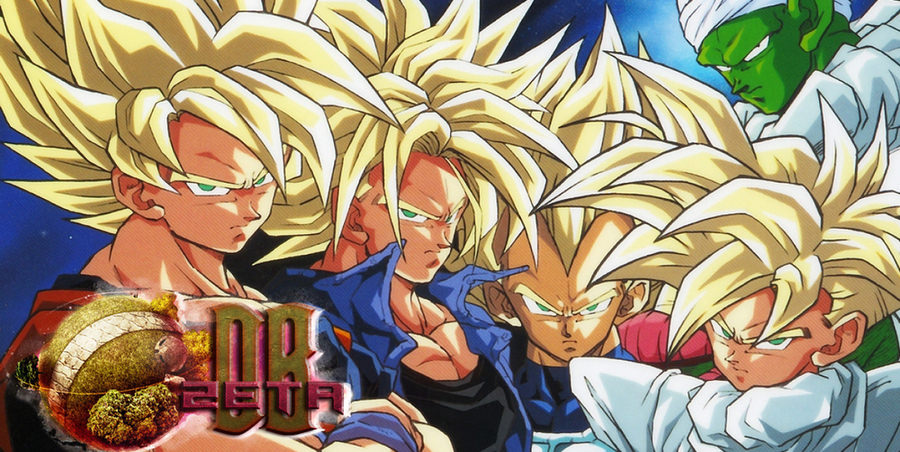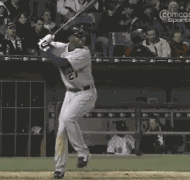- Joined
- May 31, 2015
- Messages
- 27,967
It's safe to say most of us have genres or demographics we don't like on average. However, are there any exceptions to your rule?
For me...
Ashita no Joe (Sports) - I generally don't like the sports genre as the stakes tend to be far below surface level and lead to it being hard to provide a character with permanent development when most series of the genre tend to focus so much on the sport itself compared to the characters playing it. AnJ, however, is the greatest exception to this with each match having a purpose in the plot, carrying genuine repercussions to all characters involved and the way in which the characters are affected by the sport allowing for genuinely great character development. It's because of this that despite being one of the first Sports series, it still remains the best.
Haibane Renmei (Slice of Life) - Slice of Life is for the most part a disengaging genre unless it has something else to facilitate it and provide it focus. Haibane manages to remain far more than Slice of Life through its fantasy elements and great theme exploration on life's meaning and importance.
Rose of Versailles (Shoujo) - Given Shoujo series tend to have far too much of a focus on appealing to people on an emotional scale or being filled with cliche romance due to the target audience, it obviously isn't a demographic that appeals to me. Whilst Rose of Versailles has a lot of focus on romance and characters being overly emotional, it works here due to the romances leading to complications due to their political importance and the characters genuinely being interesting enough for their emotional conflicts to be engaging. The setting also works well in this aspect, since seeing all these events unfold in the years leading up to the French Revolution is far more interesting than if you told a similar story in a modern day setting.
Princess Tutu (Mahou Shoujo) - What I don't like about Mahou Shoujo is pretty much the same as Shoujo, with the addition of almost all of them boiling down to contrived power ups based on things such as power of love/friendship essentially making them the female equivalent of most bottom tier Battle Shonen. Princess Tutu is an exception for several reasons. It's a deconstruction of the genre that serves to make its cast far more than the archetypes they begin as, the true villain is far more than we're initially lead to believe, the battles actually have choreography rather than just people shooting magic at each other and the theme exploration on things such as the masses wanting mediocrity over creativity or the effects of a damaging relationship being very well done.
For me...
Ashita no Joe (Sports) - I generally don't like the sports genre as the stakes tend to be far below surface level and lead to it being hard to provide a character with permanent development when most series of the genre tend to focus so much on the sport itself compared to the characters playing it. AnJ, however, is the greatest exception to this with each match having a purpose in the plot, carrying genuine repercussions to all characters involved and the way in which the characters are affected by the sport allowing for genuinely great character development. It's because of this that despite being one of the first Sports series, it still remains the best.
Haibane Renmei (Slice of Life) - Slice of Life is for the most part a disengaging genre unless it has something else to facilitate it and provide it focus. Haibane manages to remain far more than Slice of Life through its fantasy elements and great theme exploration on life's meaning and importance.
Rose of Versailles (Shoujo) - Given Shoujo series tend to have far too much of a focus on appealing to people on an emotional scale or being filled with cliche romance due to the target audience, it obviously isn't a demographic that appeals to me. Whilst Rose of Versailles has a lot of focus on romance and characters being overly emotional, it works here due to the romances leading to complications due to their political importance and the characters genuinely being interesting enough for their emotional conflicts to be engaging. The setting also works well in this aspect, since seeing all these events unfold in the years leading up to the French Revolution is far more interesting than if you told a similar story in a modern day setting.
Princess Tutu (Mahou Shoujo) - What I don't like about Mahou Shoujo is pretty much the same as Shoujo, with the addition of almost all of them boiling down to contrived power ups based on things such as power of love/friendship essentially making them the female equivalent of most bottom tier Battle Shonen. Princess Tutu is an exception for several reasons. It's a deconstruction of the genre that serves to make its cast far more than the archetypes they begin as, the true villain is far more than we're initially lead to believe, the battles actually have choreography rather than just people shooting magic at each other and the theme exploration on things such as the masses wanting mediocrity over creativity or the effects of a damaging relationship being very well done.

 as it's almost always just empowerment fantasy for beta losers. Bastard!! is the only exception in that regard due to also being a dark fantasy action series with a manly meng as its protagonist.
as it's almost always just empowerment fantasy for beta losers. Bastard!! is the only exception in that regard due to also being a dark fantasy action series with a manly meng as its protagonist.